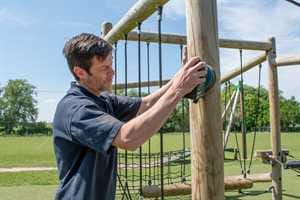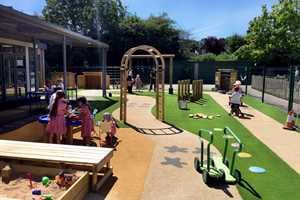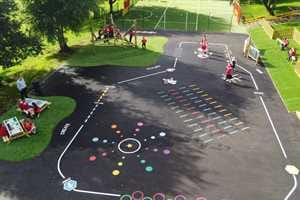
Playground Design
Target the 7 areas of EYFS learning in your outdoor playground
Do you know how to create an outdoor play space that targets the EYFS 7 areas of learning? If not, find out how to now!
The UK Government sets national standards for children's learning, development, and care from birth to 5 years old, that all schools and Ofsted-registered early years providers, childminders, preschools, nurseries, and school reception classes must follow throughout. These standards are called the Early Years Foundation Stage (EYFS) and are applied to schools and EYFS providers in England.
In planning and guiding children whilst they learn, teaching specialists must adjust their teaching in a way that suits the children's learning and development.
--------------------------------------------------------------------------------
Enter our EYFS Competition
Enter our EYFS Competition and be in with a chance to win a Pentagon Play Essentials Playhouse!
Simply download the worksheet from this blog and invite your pupils to design their own bug.
Pupils can use materials from their playground, such as sticks, stones and leaves, alongside typical craft materials such as paint, crayons and glitter to create their very own bug.
Snap a picture of their creations and send it to us via any of our social media channels!
Our team of creative product designers will pick their winner and we will coordinate delivery of your prize...
Competition closes 12pm 10/11/23
--------------------------------------------------------------------------------
There are three effective learning methods to help all practitioners when teaching children:
- Playing & Exploring – children investigate and experience things and “have a go.”
- Active Learning – children concentrate and keep on trying if they encounter difficulties and enjoy achievements.
- Creating & Thinking Critically – children have and develop their own ideas, make links between ideas, and develop strategies for doing things.
(Development Matters Report – Sept 23)
What are the 7 areas of learning for EYFS?
There are 7 different areas of learning for EYFS, and most will be taught through games and play. These are:
- Communication & Language
- Physical Development
- Personal, Social & Emotional Development
- Literacy
- Mathematics
- Understanding the World
- Expressive Arts & Design
With these 7 areas in mind, schools can provide a fantastic outdoor play space designed specifically around these areas to enhance learning through play. Our experts at Pentagon Play can help you design the perfect outdoor play area for your pupils to fulfill their potential.
By looking at the EYFS 7 areas of learning, Pentagon Play can show you what products and resources can enhance your outdoor play areas!
1. Communication and Language EYFS:
There are two areas for Communication and Language EYFS Development:
- Listening, Attention and Understanding
- Speaking
The development of children’s spoken language and communication supports all EYFS 7 areas of learning and progress. Spoken interaction between a child and adults/peers from birth onwards forms the building blocks for language and cognitive development. The quality of these daily conversations, in a language-rich environment, is critical to a child’s language development. Adults and teachers must involve themselves in conversations with children, asking them about their interests or what they are doing, whilst at the same time including new vocabulary in the conversation to aid and develop a wide vocabulary for the children.
A great way to support and develop children’s language and vocabulary is through:
- Frequently reading to children
- Engaging children actively in stories and non-fiction books
- Reading rhymes with children and playing rhyming games with them
- Reading poems to children
- Talking to children and engaging in conversations with them
- Getting the children storytelling and role-playing to share their ideas
- Questioning the children so that they can explain their views
All of these will promote language fluidity as well as provide an environment rich in new vocabulary for the children to learn, understand, and use in their everyday lives.
A lovely Pentagon Play product that promotes communication and language EYFS development is the Storytelling Pack!
Consisting of:
- Freestanding Storytelling Chair
- Moveable Grass-topped Seats (x4)
- Interactive Chalkboard
- Drum Seat (x3)
This Pack is ideal for engaging children in a multi-sensory reading and storytelling experience, whilst at the same time promoting early language and literacy skills outdoors.
The Storytelling Pack creates a unique and fun outdoor reading area for the children. Allowing them to practice their listening skills, storytelling skills, phonics, rhythm, and pace. Watch as the children eagerly walk outside to the Storytelling Area to learn, read aloud, and develop their language skills.
Easy to install in any corner of your playground with Moveable Artificial Grass-Topped Seats or Drum Seats, the children can pick where to sit or work in groups when required. If sat on a Drum Seat they could even add some rhythmical beats to the story!
Alongside the seating, the Interactive Chalkboard provides the children with clear written displays from the teacher as well as the opportunity for children to practice letter recognition, letter formation, story maps, story writing, etc.
A wonderful resource to use in helping children develop their communication and language EYFS skills.
2. Physical Development
There are two areas for the EYFS Physical Development:
- Gross Motor
- Fine Motor
Physical activity is a critical part of all children’s overall development, which will aid them to lead a healthy, happy, and active life from infancy into adulthood. Gross and fine motor skills will be developed from early life starting with exploration and their senses, development of strength, coordination, and positional awareness through crawling, walking, and playing with objects with adults.
Adults can support children in developing their core strength, coordination, balance, spatial awareness, stability, and agility by playing and creating games for them both indoors and outdoors.
By developing children’s gross motor skills children will develop healthy bodies as well as social and emotional well-being.
Fine motor skill development in children aids with hand control, precision, and good hand-eye coordination which in turn is linked to early literacy. Adults should support fine motor development with different opportunities to explore and play with small world activities, puzzles, arts and crafts, and small tools. Enabling children to develop competence, control, and self-confidence.
Pentagon Play's Warkworth Modular Play Tower is an exciting resource for any school to enhance children’s EYFS physical development.
Consisting of:
- 3 Deck Towers
- Vertical Climbing Wall
- Climbing Net
- Slide
- Fireman’s Pole
- Suspension Bridge
- Traverse Climbing Wall
Made from a combination of:
- High Pressure Treated “Play Grade” Timber
- HDPE Plastic
- Steel Reinforced Nylon Ropes
- Stainless Steel Fireman’s Pole
This fantastic school playground resource will encourage children to climb, traverse, crawl, walk, run, jump, balance, grip, and grasp. Encouraging both gross and fine motor skill development. The Play Tower provides regular access to movement and will help develop children’s confidence levels and physical skills. The Warkworth Modular Play Tower provides a wide range of activities that will support a broad range of abilities so all children can play and develop their gross and fine motor skills at their own pace. It also encourages less competent and confident children to spend time at first watching and learning from their more confident peers, without feeling the pressure to join in. But giving them the confidence to develop at their own pace via peer learning. Children of all abilities can practice their movement skills on their own, or in groups on the Warkworth Modular Play Tower.
3. Personal, Social & Emotional Development
There are three areas for Personal, Social, and Emotional Development EYFS:
- Self-Regulation
- Managing Self
- Building Relationships
Personal, Social, and Emotional Development EYFS (PSED) is key for children to lead healthy and happy lives and is necessary to support their cognitive development. Having strong attachments to the people around them who help shape their world, bolsters their personal development. With the aid of reassuring, encouraging, and robust relationships from adults, children will learn to understand their own emotions and how others feel too.
With help from children's support network around them, they should be supported to:
- Manage their feelings.
- Develop a positive sense of one’s self
- Set themselves realistic goals
- Have certainty in their own abilities
- Persist and wait for what they want
- Direct attention as necessary
Children will learn how to look after themselves by watching adults, teachers, and peers who are close to them. From:
- Looking after their bodies such as:
- eating healthily,
- cleaning their teeth,
- being able to do these actions independently
- Peer learning on how to:
- make good friends
- collaborate
- solve disputes amicably
Children will be guided by the ones closest to them and will develop these key skills that will help them navigate life both in and out of school and into their adult lives.
Pentagon Play’s Giant Playhouse is a great resource to help children advance their Personal, Social, and Emotional Development EYFS.
This wooden Giant Outdoor Playhouse, complete with chalkboard and benches, has a double-pitched roof and half-height walls on either side. A perfect resource for children to free-flow play with an open entrance, children can use the space to learn and play as well as let their imaginations run wild! The Giant Playhouse has in-built den-making holes along the top of the Playhouse to help add personal touches such as banners, bunting, and signs.
The Giant Playhouse is the perfect setting for EYFS to encourage children to story-tell and role-play as well as develop key personal, social, and emotional skills with their peers.
Role-play areas can be set up in the Giant Playhouse around children’s interests allowing them to further their interests, make decisions based on the role-play, and respect the wishes of their peers. Thus, enriching the children’s play.
Teachers could use the Giant Playhouse and transform it into a Hairdressers knowing that most children will have visited one either for themselves or with an adult. Teachers can add chairs, mirrors, and old shampoo and conditioner bottles to the Giant Playhouse along with items that reflect different ethnicities, such as combs and brushes, etc. to encourage role-playing around a topic of interest. Watch how the children resolve conflicts and rivalries (as not everyone can be the hairdresser), as well as notice those children who are finding it hard to join in. Children can use the Giant Playhouse in small groups of one or two children to encourage positive play and cooperation.
Product Spotlight
Teachers should model to the children how to play, share, and resolve issues by suggesting how to listen to others and find some common ground and a compromise.
4. Early Years Literacy
There are three areas for the Early Years Literacy:
- Comprehension
- Word Reading
- Writing
It is important that children develop a lifetime love of reading. Reading can be broken into two parts and can start from birth:
- Language Comprehension (needed for reading and writing)
- Word Reading
Comprehension, however, only commences when adults talk to children about the world around them, through the books that they read with them (fiction and non-fiction) and enjoy rhymes, poems, and songs with each other. Word reading develops at a later stage when adults teach sounding out and decoding unfamiliar and familiar printed words. Writing develops through spelling, handwriting, and composition (expressing ideas and arranging them in speech, before writing them down.)
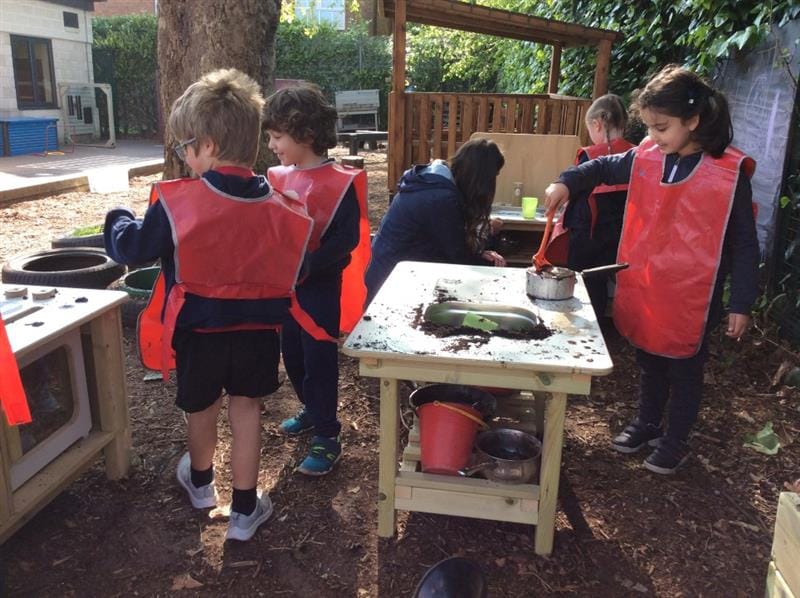
A lovely Pentagon Play resource that aids Early Years literacy throughout EYFS and KS1 is our Head Chef Mud Kitchen Package, ideal for whole-class activities where everyone can get involved!
Consisting of:
- Mud Kitchen with Oven
- Mud Kitchen with Sink
- Mud Kitchen Island
- All Including Chalkboards
Made from:
- High Pressure Treated “Play” Grade Timber
- High Pressure Laminated Outdoor Plywood Countertop
This package provides children the space to work between the three different surfaces and interact with each other, encouraging them to communicate, read, write, and comprehend. This can be done by setting the scene for the children and turning the Mud Kitchen into a Café, Restaurant, home kitchen or a witch’s cavern. Children can use the chalkboards to write down recipes, and potions, take orders, and make the Café sign. A great way of developing Early Years literacy for example: phonics, spelling, written communication skills, and comprehension whilst at the same time developing their fine motor skills.
Children’s verbal communication will also flourish as they instinctively chat away to their peers in full role-play, bringing the Café, restaurant, or witches’ cauldron alive!
A great resource that will keep your pupils entertained as well as a wonderful opportunity for them to learn whilst playing.
5. Mathematics
There are two different areas for the Early Years maths:
- Number
- Numerical Patterns
Children must develop a strong understanding of numbers so that they can excel mathematically. By doing so they must have the building blocks from an early age of understanding of numbers 1 to 10, counting confidently, and understanding the relationship between them and the patterns formed.
To aid numerical development with children from an early age adults must give children opportunities to build and apply their understanding. By providing manipulatives (conkers, shells, pebbles) and tens frames, children can organise their objects and count them to 10. Promoting knowledge and vocabulary as well as mathematical mastery. The national curriculum also wants children to develop spatial awareness (shape, space, and measures). The aim is for children to become excited about mathematics, look for patterns and relationships, spot correlations and “have a go”, talk to adults and peers about their findings, and not be afraid of failure.
Pentagon Play has a wide range of Playground Markings that can enhance children’s number recognition 0-10, whilst at the same time playing! Pentagon Play’s Funturf Snake 0 to 10 and 1-10 Number Caterpillar are fun Playground Markings, helping children to learn numbers 0-10 whilst being active and learning Early Years maths at the same time. Teachers can create engaging playground Early Years maths activities involving the Snake and/or Caterpillar which promotes children’s physical development as well as aiding younger children to learn different colours!
4-Way Hopscotch (1-10) ensures more children can enjoy the Playground Marking at the same time. Children can race each other there and back individually or do team races to enhance Early Years maths, physical development, and communication skills during playtime. As well as teachers incorporating the 4-Way Hopscotch into outdoor Early Years maths lessons.
Counting Caterpillar adds colour and vibrance to any playground, whilst at the same time enhancing Early Years maths learning and number recognition. Children can work independently or in groups during lessons or playtime to work out math equations.
6. Understanding the World
There are three areas for Understanding the World EYFS:
- Past and Present
- People, Culture and Communities
- The Natural World
This is essential in EYFS to encourage children to make sense of their physical world and community. The more children do in their everyday lives the more knowledge they will have about the world around them from visiting shops, doctors, libraries, and parks to meeting members of our society like policemen, nurses, and teachers. Also reading to children a wide range of material such as fiction, non-fiction, poems, and rhymes will enable children to understand the world culturally, socially, technically, and ecologically which then enhances children’s vocabulary and comprehension.
Pentagon Play’s 5M Hexagonal Secret Garden Gazebo is a wonderful addition to a school's playground, providing a fantastic environment for children to encounter the natural world.
Consisting of:
- Decked Based
- Log Clad Sides (x5)
- Benches (x5)
- Trellis Arbour Entrance
- Planters (x7)
- Chalkboard
- Rainwater System
- Water Butt
The 5M Hexagonal Secret Garden Gazebo is the perfect environment for children to learn about and be hands-on in nature. Children can be encouraged to plant flowers, and vegetables in the beautiful trellis arbor entrance or in one of the 7 planters which surround the Gazebo. Enabling natural play opportunities for children. Watch as the children plant and grow their flowers and vegetables which will add an aesthetic appeal to the Gazebo as well as develop a sense of pride and achievement in growing them. Children will learn about the life cycles of flowers and plants, and about healthy eating and the vegetables they are growing which in turn they can eat.
The Chalkboard and Benches provide a wonderful place for the children to be creative and engage with key topics in the curriculum. The Gazebo could be turned into a local grocery shop selling the vegetables the children have grown.
The Chalkboard could be used to note down the different vegetables and the costs and the Benches could be used as the shelving. Encouraging linguistic skills and vocabulary as well as communication between peers.
Different vegetables from different cultures could be planted so that children get a greater understanding of what different households eat. The children could also gather in the Gazebo to have stories read to them about these cultural differences. A perfect location for children to grow up in a natural environment as well as learn about nature and different cultures.
7. Expressive Arts & Design
There are two areas for Expressive Arts & Design EYFS:
- Creating Material
- Being Imaginative & Expressive
Creativity and imagination need to be nurtured in children from an early age. By having artistic and cultural awareness children can develop their creative flair. It is therefore important to provide children with regular opportunities to engage with their creativity through different media and materials. It is critical that children see, hear, and take part in a wide range of mediums so that they can develop their understanding, expressiveness, language, and ability to communicate through the arts. By having repetition and frequent exposure to the arts children can deepen their creative development which supports their growth in understanding and grasping what they hear, respond to, and observe.
Pentagon Play’s Group Art Easel is a lovely resource for group creative projects.
Comprising of:
- 2 x Chalkboards
- 2 x Clear PETG Panels
- 1 x Chalkboard Top
This low-level, 4-sided Art Easel is fantastic for children to use. Having shelving for paint pots, chalk, and pens children can take their pick and get creative, develop their imaginations, and work individually or in groups.
Having two opposite transparent paint panels, children can peer at each other through the panels or chat with their neighbours. A great way to help children with portrait painting where they can look at each other and be creative, whilst at the same time building friendship and communication skills.
The Group Art Easel can help children improve their artistic skills by:
- Developing colour-mixing techniques
- Developing fine motor skills (holding paint brushes, pens, chalks etc)
- Being encouraged to notice features in the natural world
- Understanding the difference between colour, shape, textures and smells
- Developing and realising their creative ideas
- Developing different artistic techniques by using a wide range of different materials
- Developing independent and group work
For more information on any of Pentagon Play, Contact Us or call one of our expert advisers on 01625 890 330 to help you with any questions.
REFERENCES:
.jpg)
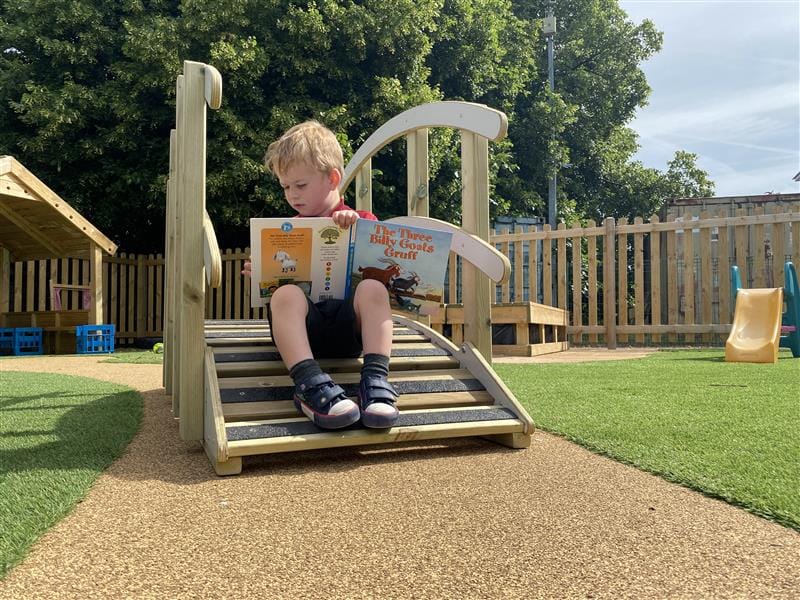
.jpg)

.jpg)
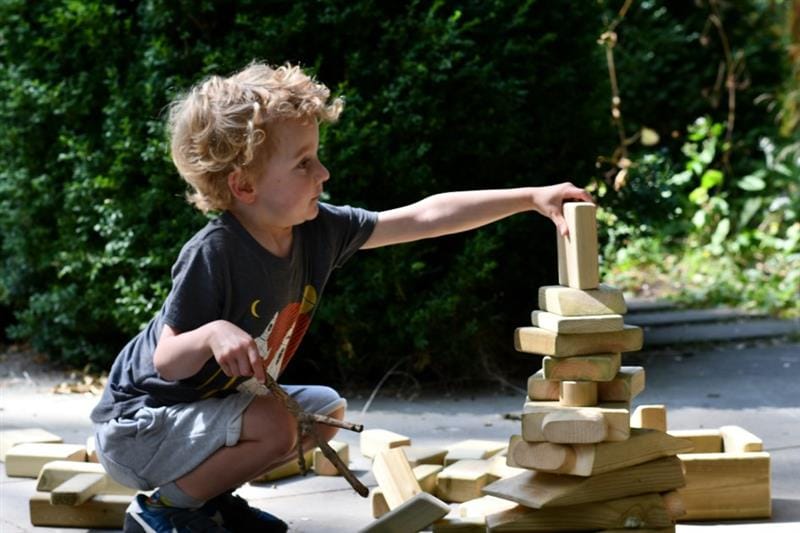
.JPG)
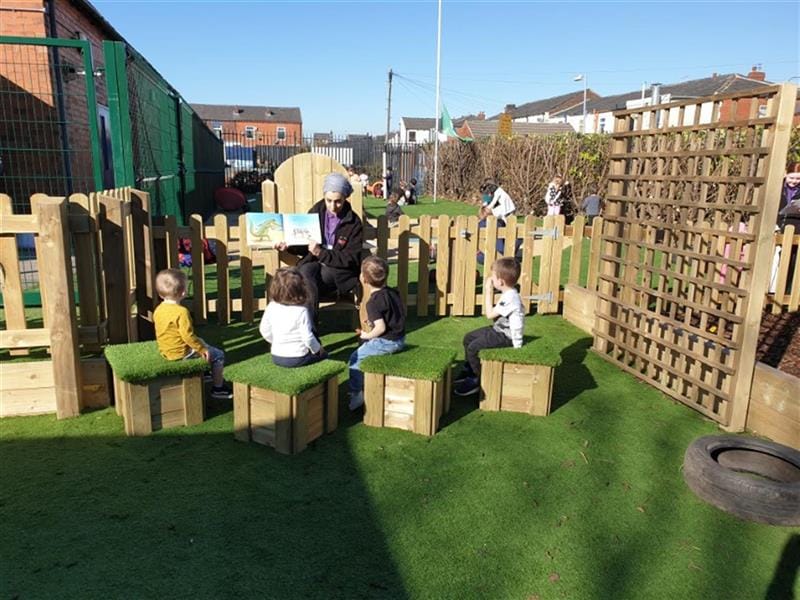
.jpg)
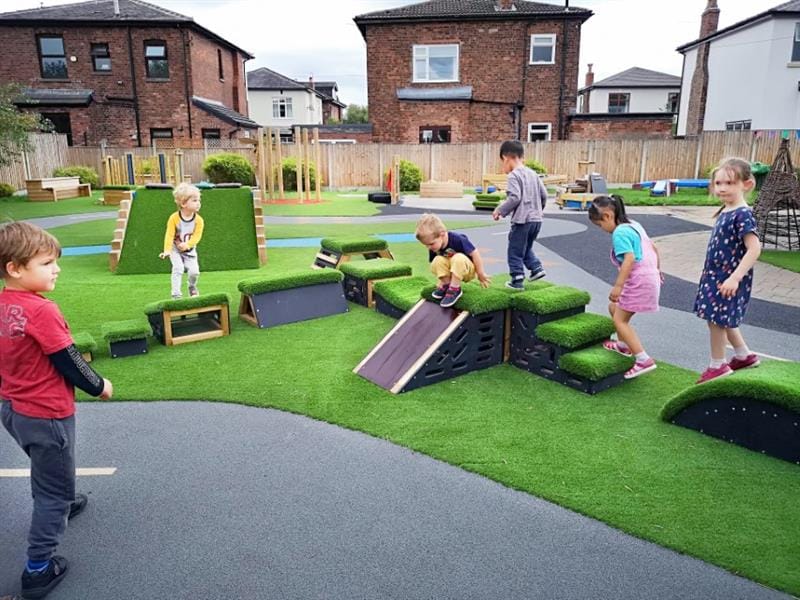
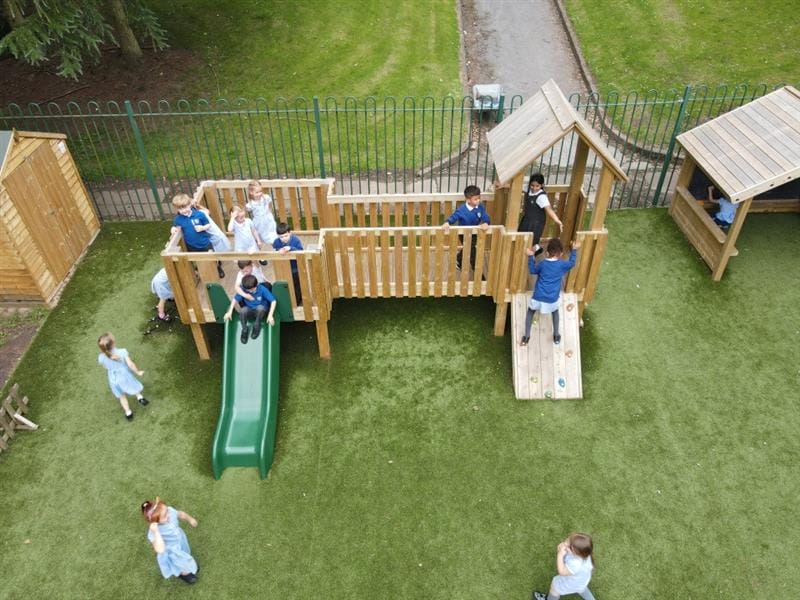
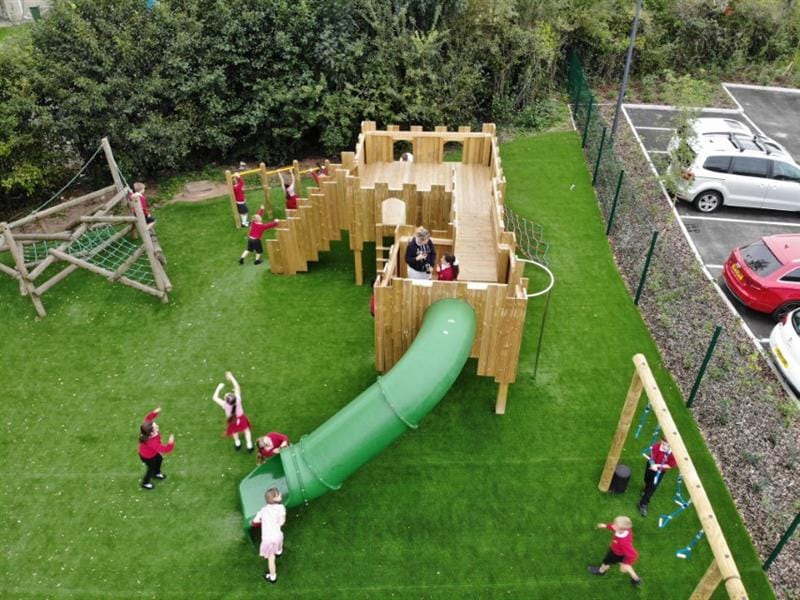
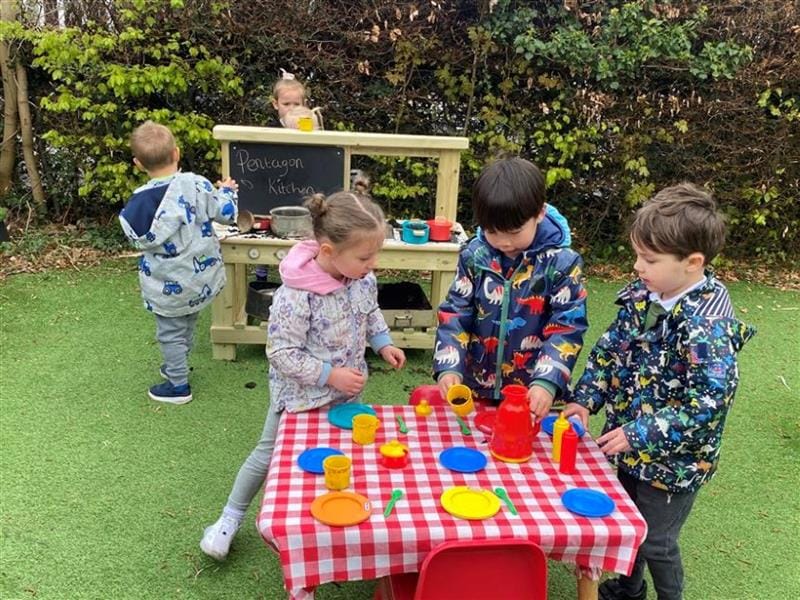
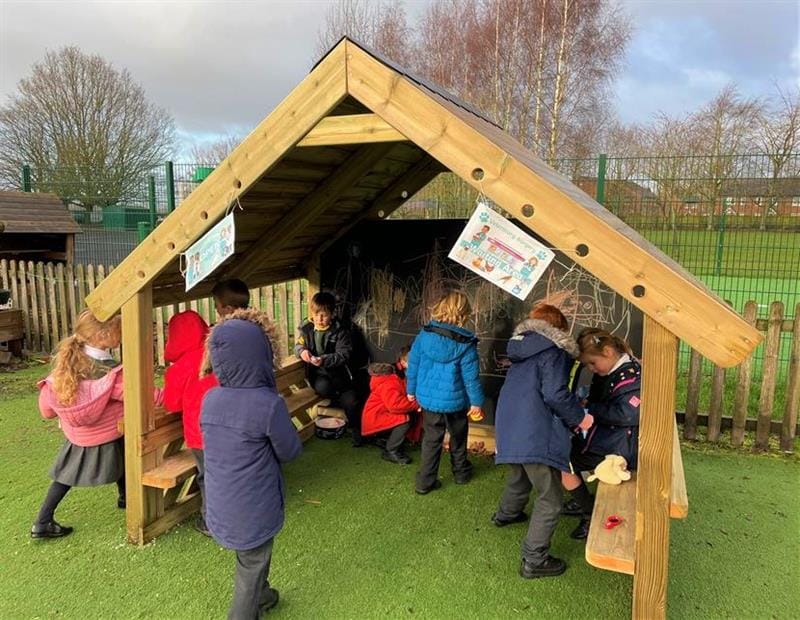
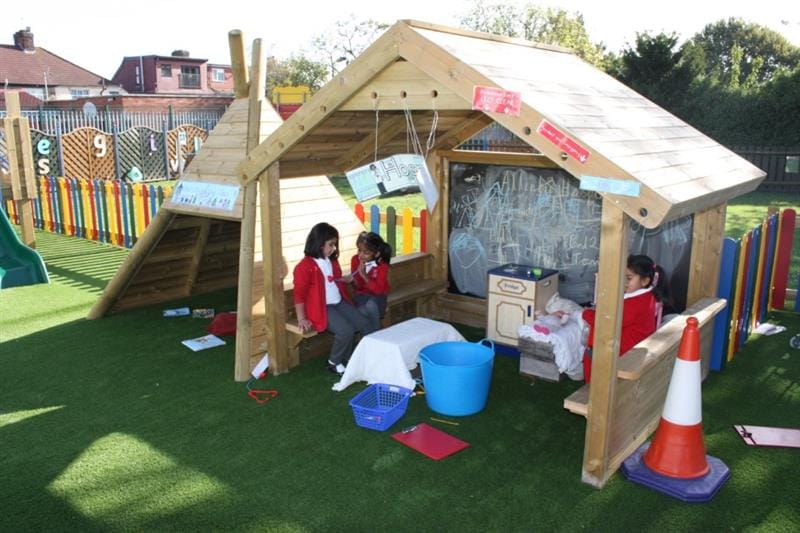
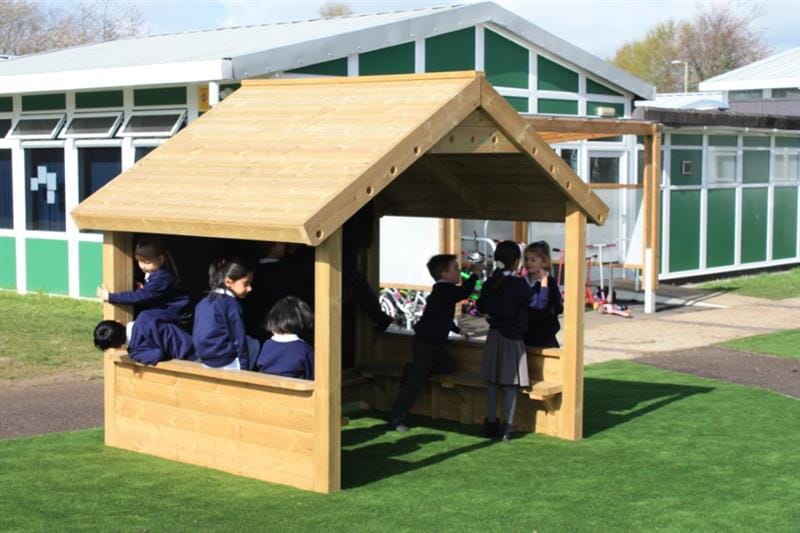

 (5)-web.png)
.jpg)
.jpg)
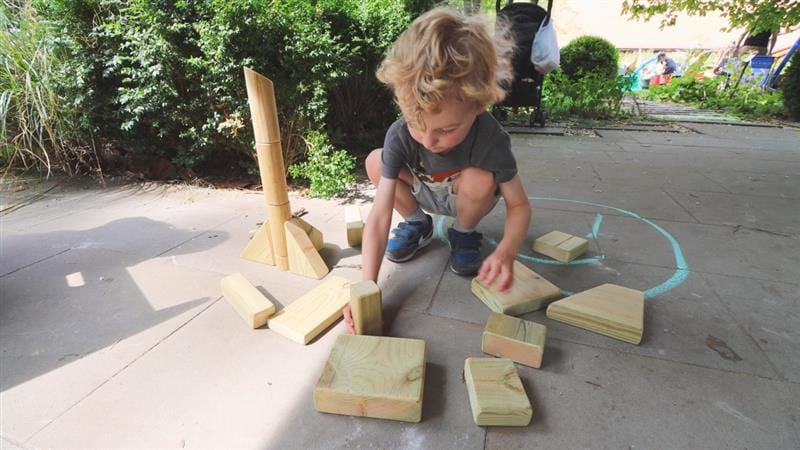
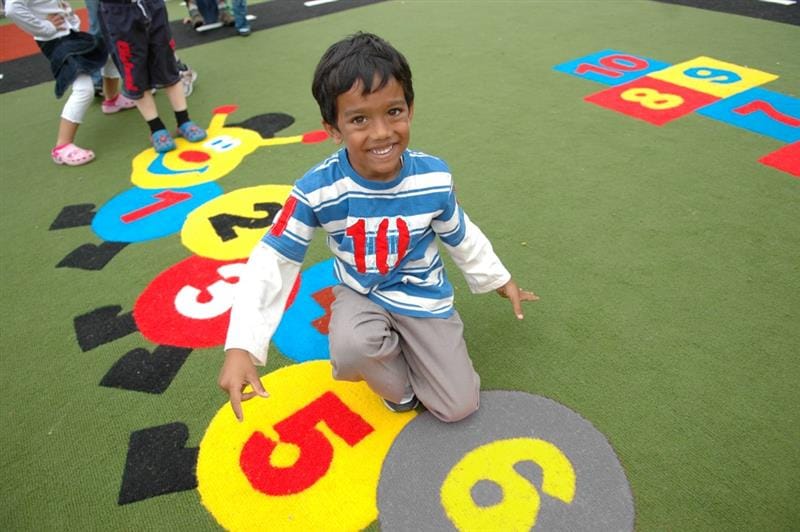
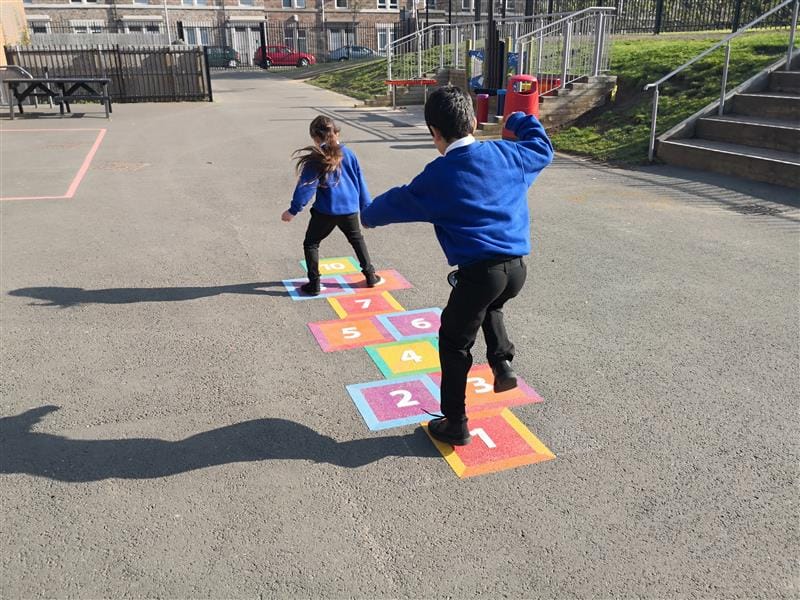
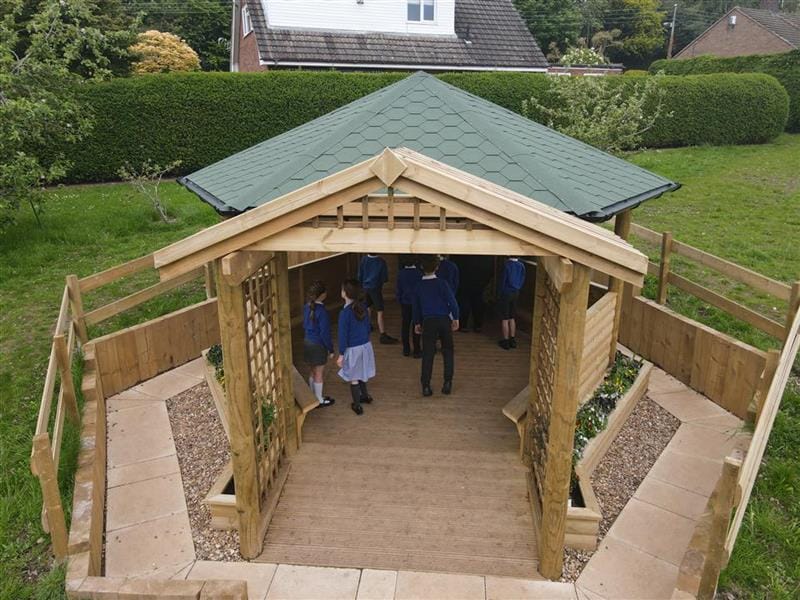
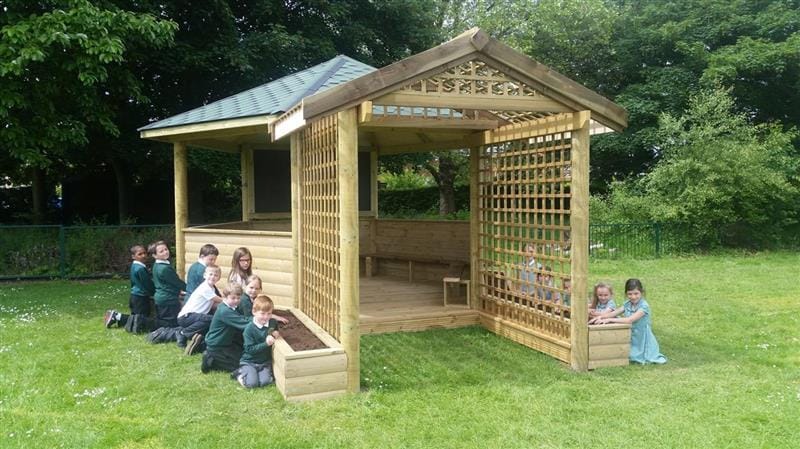
.JPG)
.jpg)

